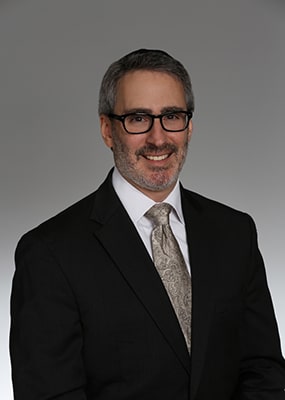
Understanding the Mechanics of Your Commercial Lease
Rent is typically a business's second largest expense following wages and a lease is often a five to ten year term. Therefore, your lease is probably one of the most significant contracts that you as a business owner will enter into. And it's probably one of the most costly ones, too. That’s why it's important to understand some of the mechanics of your commercial lease. Commercial leases are often negotiated, and a reasonable landlord will consider modifications that benefit the tenant. As a Florida Bar Board Certified Real Estate Attorney, with significant experience in commercial leasing, following are some considerations that I recommend people think about before signing a lease:
- Exit Strategy: What is your exit strategy? Can you terminate the lease early? And if so, under what circumstances? Can you assign or sublease? The permitted use allowed in the lease is a function of what you can or can't do with respect to your exit strategy.
- Timing: What is the timing of the landlord or tenant construction/improvements?
- Responsibility: Who's paying for construction/improvements? How and when is the landlord dispersing any tenant improvement allowance?
- Code Changes: Who is responsible for required improvements to the property due to code changes? For instance, several years ago, the ADA changed, and every commercial space had to be modified, therefore you need to know who's responsible for paying and making those changes?
- CAM Expenses: How are operating expenses, often referred to as CAM (common area maintenance), determined? What's included and excluded in the component of CAM? What are your audit rights as a tenant to review and audit the way the landlord has assessed CAM?
- Future Alterations: What are your rights to make alterations and improvements to the property after the lease commences? This is particularly important for leases with longer terms and renewal options.
- Parking: An issue that I find a lot of tenants asked me about is parking and signage. To what extent do you have reserved parking and does any other tenant in the building have reserved parking?
- Signage: What are your signage rights and who's paying for your signage?
- Personal Guaranty: Is the lease personally guaranteed, and if so, can that guaranty be “burned off?” Will it be reduced at some point? Can the guaranteed amount be limited?
- Defaults: What triggers an event of default under the lease? What kind of cure periods are given to the tenant? And what kind of rights and remedies does the landlord have in the event of a default?
- General Maintenance: Who is responsible for general maintenance of your of your premises? Who is responsible for repairing and replacing the HVAC?
- Tenant Estoppel and SNDA: There is an obligation by the tenant and sometimes a landlord to deliver estoppel letters – confirmation of the status of the lease, rental payments, the absence of defaults, and other information. Most leases also require a tenant to enter into a “Subordination, Non-Disturbance and Attornment Agreement,” also known as an “SNDA.” These provisions should be reviewed and considered.
- Casualty Damage: Florida is subject to hurricanes, which can destroy or damage a building or leased premises. Other casualties such as fire and flood are important considerations as well. What are your rights and obligations in the event that your leased premises, a portion of the building, or even just common areas like parking and access are no accessible?
These are just some of the considerations you should make when entering into a commercial lease in Florida. We recommend finding an experienced commercial leasing attorney to assist with negotiations and ensure that concessions are worked out in your favor. At Sachs Sax Caplan, we can help you determine if the lease terms are beneficial to you and, if not, help you negotiate a better lease. From commercial lease negotiation, amendments, renewals and disputes, our trusted real estate attorneys can assist with any commercial lease agreement needs you may have.

Daniel Kaskel is the Chair of the firm’s Real Estate, Corporate, Land Use & Financial Services Group and a member of the Community Associations Practice Group. Mr. Kaskel is among Florida’s handful of double Board Certified attorneys by the Florida Bar, holding certifications in Real Estate Law and Condominium & Planned Development Law. Learn more about Daniel here.
When you subscribe to the blog, we will send you an e-mail when there are new updates on the site so you wouldn't miss them.

Sachs Sax Caplan, P.L. is proud to be recognized by The Florida Bar for our commitment to hiring and developing Board Certified Attorneys.

